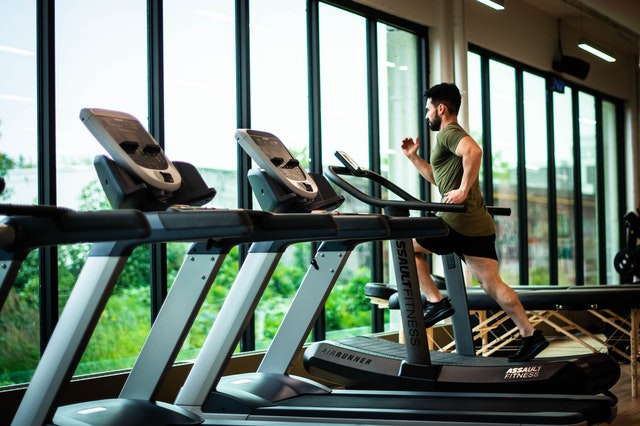Virgin Active has had an incredibly tough time during the pandemic. Even when the gyms were allowed to reopen, I wasn’t convinced that people would rush back for the experience of wearing a mask while exercising. Sadly, I was proven correct.
This is part of the wonderful approach taken to our health by global governments, who continue to focus entirely on managing Covid while creating an unfit, unhealthy population in the process. Virgin Active bore the brunt of these policies.
This is where being part of a listed group can be the difference between success and failure. Virgin Active is still going, even if Brait shareholders look like they just completed three spinning classes in a row while wearing two masks.
The Brait share price collapsed from over R12 per share in January 2020 to below R2.70 at various points over the next 18 months. It clawed its way back to R4.30 by Friday’s close.
This is how markets work. Whether or not you make money is often a matter of timing.
Going forward, there’s a change of guard at Virgin Active at a time when some countries (like South Africa) are reporting gym contract sales in line with 2019 levels. That will bring back good memories for the Virgin Active team, as record EBITDA of GBP142 million was achieved in 2019.
The CEO and co-founder of Virgin Active, Matthew Bucknall, is retiring after 25 years of service in June 2022. Virgin Active looked globally for a successor and eventually found one right here in South Africa, which I think is great.
Dean Kowarski has been appointed as the new CEO. He started the Real Foods Group in 2013 and acquired Kauai in 2015, a business he grew from 100 outlets to 204 outlets. 108 of those outlets are within the Virgin Active gyms, so it’s not difficult to see why he is a natural choice. Pun intended.
The Managing Director of Virgin Active South Africa has also been bumped up to Group CFO of Virgin Active Group.
They will have their work cut out for them. Virgin Active is raising R1.8 billion in equity capital from its existing shareholders and will need to achieve a solid return on investment. The cash will be used for liquidity purposes and growth capital. The raise is denominated in GBP (GBP88.4 million), so the eventual ZAR amount may be different.
When all is said and done, Brait’s shareholding will decrease from 79.8% to 67.3%. Virgin Group will hold 16.6%, DK Consortium (linked to Real Foods) will hold 7.9%, Titan Premier Investments (Christo Wiese) will hold 7.9% and management investors will hold 0.3%.
The investments in Virgin Active are based on Brait’s net asset valuation of the business as at 30 September 2021, adjusted for the movement in net debt up until 31 December 2021. The injection of capital is then taken into account in the valuation, creating what is known as a post-money valuation i.e. the value of the company after the cash has been put in.
The underlying EV/EBITDA multiple in this calculation is 9x, which still feels high to me, especially as the calculation is based on “maintainable EBITDA” which makes important assumptions about the post-pandemic state of the business. Having said that, the fact that highly skilled investors are happy to take equity at this level is supportive of what Brait has been telling its shareholders.
Titan Premium Investments (a Christo Wiese investment vehicle) will take the lion’s share of this capital raise, putting in GBP50 million in equity. Members of the DK Consortium will put in GBP18.2 million. The remaining GBP20.2 million will be put in by Brait and Virgin Group on an 80-20 split.
In addition, the DK Consortium has been granted two options. The first is to inject another GBP25 million at the existing valuation until 31 March 2023. The second is to acquire a further 0.61% in Virgin Active until 31 March 2025.
Brait, Virgin Group and Titan also have the option to subscribe for up to GBP25 million in aggregate until 31 March 2023.
The balance sheet will receive a further boost in the form of the capitalisation of the R950 million commitment to Virgin Active’s lenders that was entered into in 2021.
The net impact on Brait, other than a dilution in Virgin Active, is that pro forma net debt would increase from R2 billion at 31 December 2021 to R2.4 billion. The facility limit is R3 billion. Once the proceeds from the sale of Consol are received, the net debt would reduce to R2 billion.
In addition to the considerable changes to Virgin Active’s balance sheet and shareholder register, the company has agreed to acquire the Kauai and Nu assets from Real Foods for GBP28.6 million. This will be paid for using shares in Virgin Active and the deal is expected to close by September 2022. This is a logical alignment of interests with the new CEO.
The valuation for the food assets was based on a 9x EV/EBITDA multiple using 2-year forward EBITDA (a guess about what the profitability might be in two years from now). This is a similar approach to the valuation of the broader Virgin Active Group that has informed these transactions. This would lead to a further 4.5% stake being held by the DK Consortium.
In case it isn’t obvious yet, Brait and the other shareholders are throwing everything behind Dean Kowarski and the DK Consortium. He will be tasked with taking the group forward as CEO and will have a material stake in Virgin Active.
From an alignment perspective, that’s ideal. Brait shareholders have been through a horrible time and deserve a break. The share price is down nearly 7% this year.




